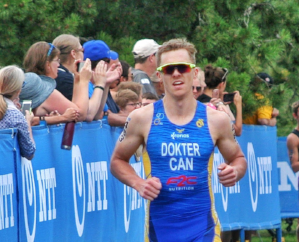Don't Rely on Your Resolutions
The new year is here and thousands of determined individuals set out to create a better life for themselves through motivation and a new outlook on life. That’s all fine and dandy until February when 95% of them are back to their normal routine. I’ve never really supported New Years resolutions and mainly because of how rarely people actually follow through with them. If you’ve set out some resolutions in the past and had achieved them then props! I’m happy for you, but why did you need the calendar to change for you to start? If it’s important to you and something you want to achieve then don’t wait for an excuse to start, just start!
You may have already made some resolutions for 2018 and that’s great! But instead of just writing them down, let's develop them. Treat your resolutions like goals (because they’re pretty much the same thing). Goals need to be SMART (specific, measurable, attainable, realistic, timely). Whether your goal is to run a sub 40 minute 10km, or finish your first Ironman, you need to first be specific. Which race do you plan on doing? When is it? What specifically do you want to achieve at the race? Are you looking for a podium or just going to finish? All these questions need to be answered first before diving in. Let’s take the example of finishing your first Ironman. You decide that your first Ironman is going to be Ironman Texas in April. You’ve got the specifics but how do you measure it? You can measure it in a few different ways; a time you want to beat, finishing the race under the allotted time, specific times for each leg of the race, etc. Choosing how you measure whether your goal is a success or not will give you a clearer picture of how to accomplish it. Now, is this goal attainable? If this is your first time ever swimming in open water, or cycling long distances, than maybe an Ironman in 4 months isn’t that attainable. However, if you’ve been doing some training in the past and want to step up to the Ironman distance, it’s entirely possible for you to crush it. On the same page, is this goal realistic? This criteria is fairly similar to being attainable but still a relevant question. Do you have the time to put in extra training hours to get to the finish line of an Ironman? Do you have the extra funds to afford such an expensive race? (Especially if you have to fly there). Having your goal be unrealistic stops it in its tracks and gives you an excuse to not follow through. Make sure your goals are realistic or you’ve pretty much given up before even starting. Lastly, your goal needs to have some sort of time constraint or in this case, the date of the race. If your goal isn’t to finish a race on a specific day, you should set a date for when you want to be finished your goal, or dates that you want certain parts of your goals finished. Be smart, make smart goals. Engrave these goals into your lifestyle. For me, triathlon is more than just a sport, but a lifestyle that I live everyday. My goals are everywhere around me through every moment of my day. Before I do things, I like to ask myself “is this going to get me closer to my goal?” And if it’s not, I don’t bother (unless it’s chocolate, I always have room for chocolate).
A final bit of advice on your resolutions before you go after it; make sure your goal is something YOU want. I’ve seen a lot of people develop goals that will make other people happy or make other people like you more and that upsets me. You shouldn’t have to work so hard to impress people. Your goals should be there to make you a better person, or to make you happy. Just make sure you’re doing this for you.
No matter what your goal is, don’t wait for a sign to start; just start.
“Tomorrow you would have wished you started today"
Eric Dokter is a professional triathlete in Calgary, Alberta, and member of the Kronos Triathlon Club and T1 High Performance Team.



